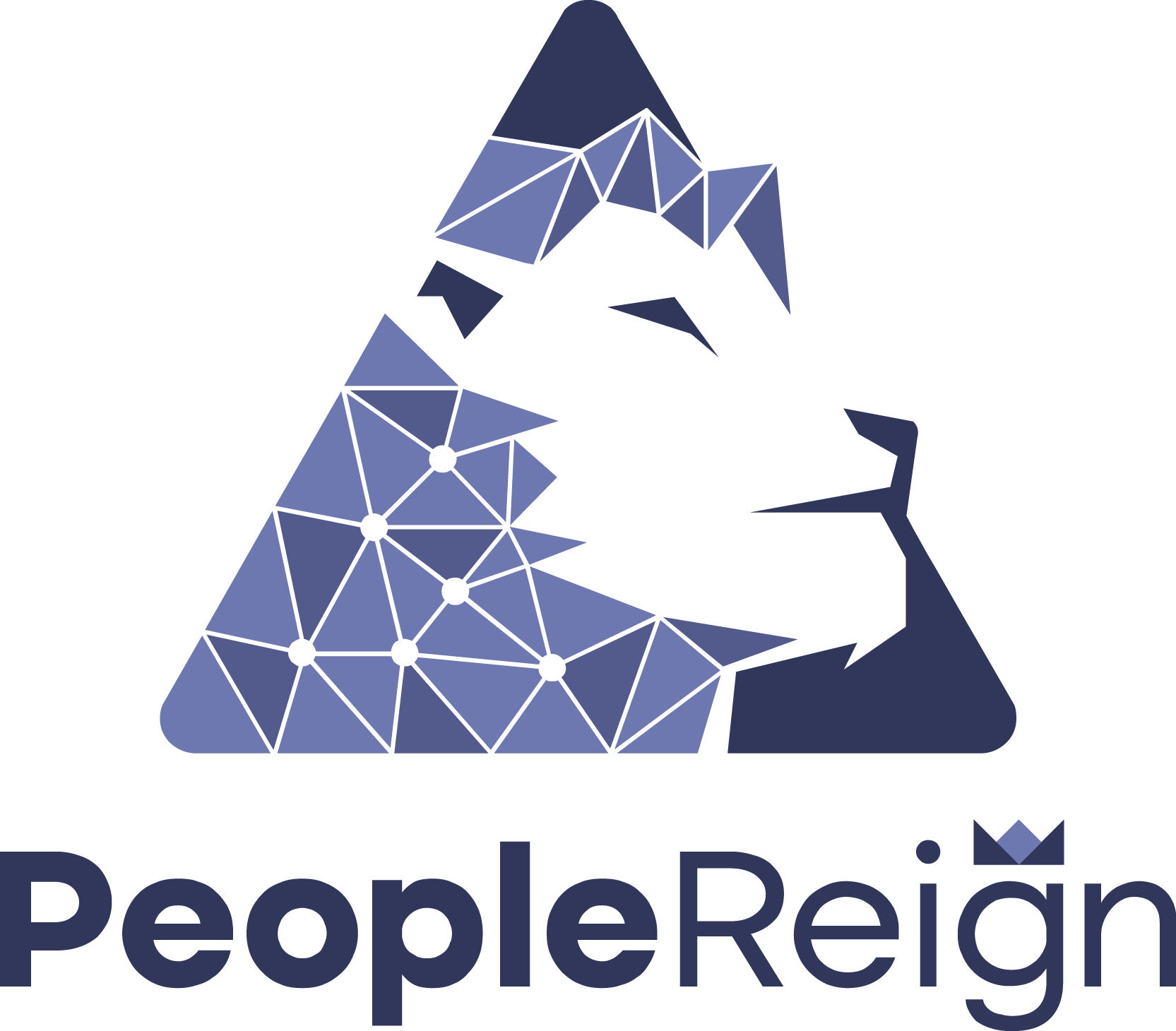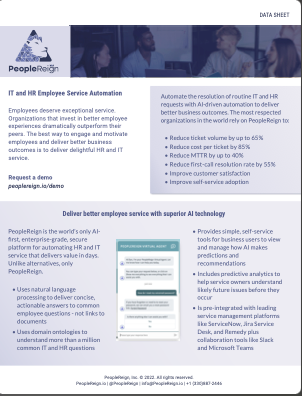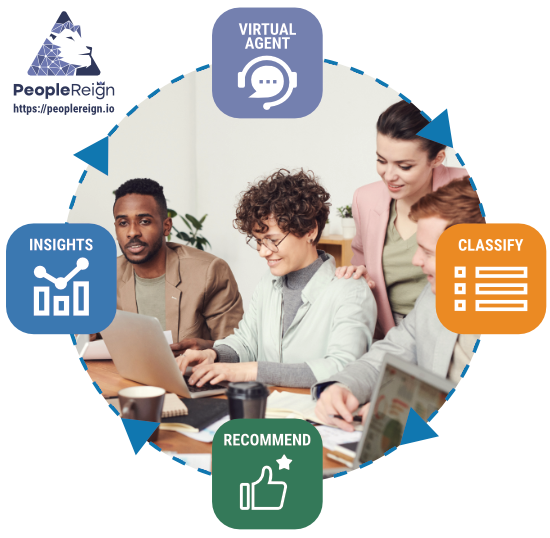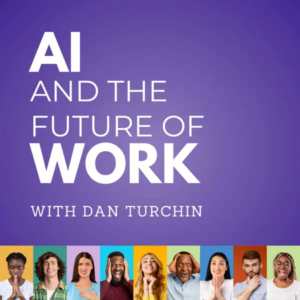This is a transcript from the AI and the Future of Work podcast episode featuring Dan Turchin interviewing Paddy Padmanabhan, CEO of Damo Consulting
Dan Turchin (00:15):
Good morning, good afternoon, or good evening, depending on where you’re listening. Welcome back to AI and the future of work. Thanks again for making this one of the most downloaded podcasts about the future of work. If you enjoy what we do, please like comment and share in your favorite podcast app, and we’ll keep sharing great conversations. I’m your host Dan urchin advisor at insight finder, the system of intelligence for it, operations and CEO of people ran the AI platform for it and HR employee service that now cliche great resignation is certainly upon us, nearly 13 million American workers quit their jobs in the third quarter of 2021 alone in search of we’ll call it more fulfilling work experiences. 74% of full-time employees say they will search for a new job in 2022, according to a recent job list survey of 20,000 job seekers, the pandemic has caused us to focus on our quality of life, our priorities, and of course our health better work life balance, and a healthcare system could be what ultimately get us out of both the pandemic and the great resignation.
Dan Turchin (01:30):
What we’ll call the digital disruption that’s underway in healthcare is a topic that frankly, we haven’t discussed much on this podcast, but it’s adjacent to the topics that we discuss every week. Things like your data, the ethics of AI digitization at work, and even the cultural implications of automation. That’s all gonna finally change this week. We’re joined by Patty P CEO of Gamo consulting, a digital strategy consulting company for healthcare tech leaders. Patty’s based in Chicago and his team has been working with healthcare organizations and technology companies for about a decade to help them define their digital strategies. Patty’s also the author of healthcare, digital transformation and host of the big unlock podcast without further ado. Patty, it’s my pleasure to welcome you to the show. Get started by having you share a little bit more about your, your background and how you got into this space.
Paddy Padmanabhan (02:30):
Thank you, Dan. It’s a pleasure to be here. I’ve been in the healthcare tech now for over 20 years. You know, I was in the big four consulting firms and about a decade or so ago, I became an entrepreneur among other things. I was in two healthcare focused analytic startups that went through exits now I run my digital transformation advisory firm demo consulting. As you mentioned, along the way I wrote two books one was called the big unlock, which was about data and analytics and how that’s going to drive the digital transformation of healthcare. And the more recent one is what you just mentioned, which is healthcare, digital transformation, which I co-authored with ed marks who was CIO Cleveland clinic at the time. And yeah, so it’s been an interesting journey. I have been in healthcare, like I said, for a long time, mostly looking at it from a technology perspective and the digital transformation of healthcare is really about technology led transformation.
Paddy Padmanabhan (03:36):
And within that, there’s a lot of that we can include in the definition of technology enabled transformation, you know, you’ve seen the pandemic has given rise to an accelerated growth of telehealth and virtual care modalities. The AI and advanced analytics journey is underway and it’s making progress you know, in some areas more than in others. And a lot of other emergent technologies are also coming into play. You mentioned the great resignation and in that context you know, tools like voice recognition are coming into play to try and alleviate the workload and the burden on caregivers. So these are among the several things that we focus on as a company. And I spend time on in analyzing as we, as we go through this, this exciting transformation that, that we are all living through.
Dan Turchin (04:38):
So let’s talk about the most recent book, so healthcare or digital transformation, what are some of the main themes? And then more importantly, what’s the single thing that you learned while re while researching that surprised you most?
Paddy Padmanabhan (04:50):
Well, I’ll tell you a little bit of a backstory on the book. So foundation for the book was the work that my co-author and I did together. When as I mentioned, he was a CIO of Cleveland clinic. Now we had written the entire manuscript up and we based that on over 150 interviews with healthcare and healthcare technology leaders, what we really wanted to do was capture the essence of what was going on in of the digital transformation of the healthcare sector. And we completed the manuscript, we broke it out into a number of themes, you know, those themes are all in the book. We talked about the consumerism of consumerization of healthcare as one of the themes. We talk about the transformation of the backend technology infrastructure through advanced technologies like cloud and AI. As another theme, we talked about the the exploding digital startup, digital health startup ecosystem, which was powering the transformation of healthcare through innovative new solutions.
Paddy Padmanabhan (06:03):
These were some of the themes that we covered in the book, and these were all themes that were playing out in the transformation of healthcare. We submitted the manuscript to our publisher in February of 2020, and we all know what happened right after that. So we held off on releasing the book. We went back and did more research, and we, we felt that, you know, the themes that we had talked about in the book were gonna dramatically change because of the pandemic. Surprisingly, we found that many of the teams actually were reinforced by the pandemic, especially the shift towards telehealth and virtual care models. And there were other things that maybe didn’t get impacted as much as we thought they would. So we ended up rewriting several sections in the book and actually gave it a new title. The original title was something else, but that was kind at the Genesis of the book
Dan Turchin (06:59):
On a personal note, kind of anecdotally, I recently switched from Kaiser as my primary care provider to Anthem. And what has surprised me most is that the quality of the digital experience at Anthem is far far lower than what it was at Kaiser. My perception of the quality of care is impacted by the quality of the digital experience that I have with my provider in a way that I didn’t realize when I made the switch. What do you see as the biggest opportunities for healthcare providers to build trust with patients differentiate themselves using technology?
Paddy Padmanabhan (07:43):
You bring up a very, very important point. And my firm just published our annual research paper, which talks about the trends for the, for the year. And one of the trends that we’ve identified, one of the priorities that provide define is critical for healthcare organizations today is the quality of the digital health experience for consumers. And this is exactly what you’re referring to. We’ve found that over the last few years, people have slapped on technology into their healthcare operations. So whether it is from an access standpoint or from a care delivery standpoint, but the experience is suboptimal today, the experience could be a lot better and consumers like you and me are benchmarking our experiences to what we exp when we buy an apple product or an Amazon product. And so it’s no longer adequate to be best in class in a field that has set a low bar for itself.
Paddy Padmanabhan (08:52):
And so this is gonna be the number one challenge. And I find when I talk to our clients and others in, in healthcare, the poor experience, or the lack of a good experience translates very quickly in the lack of adoption. And so all of the technology investments that you make are gonna come to not if your caregivers and your patients don’t adopt the technology, you’re not gonna be able to make them use the technology if the experience is not good. And so you know, you’ve done the work of investing in the technology. The next step is investing in the experience. That’s really one of the big priorities. So what you described is just one among a million such anecdotes that people are paying attention to today.
Dan Turchin (09:44):
So in the world of technology, at least in enterprise software, we can often look at where the money goes. And if we follow the paper trail of the money in the form of where the venture venture capital going, we can often quote, predict the future. We can see where the disruption is up ahead. If we apply that to call it health tech. And we look at maybe some new entrant in the market, whether it’s like a forward or carbon health, or, you know, some, some innovators like that, is that an indication of the kind of healthcare ecosystem we’ll see in a decade?
Paddy Padmanabhan (10:18):
Well, the numbers just came out and believe close to 30 billion, went into digital health startups in 2021. And that was, I think, more than twice the amount that went into digital health in 2020. So if that is a barometer or a benchmark, then you know that there is a lot of interest in innovative digital health startups, because venture capitalists believe that some of these startups are going to transform the healthcare sector and the transformation of the sector is underway anywhere. And it also implies that there’s a lot more innovators coming into healthcare, wanting to innovate building companies, coming up with innovative new ideas to transform delivery of care or the access to care or any other aspect of care, which involves a digital interface. And so this is really what we’re seeing. And I think some of these companies are going to eventually end up transforming the sector over the past few years, if you look at what has happened, and if you keep each score by either IPOs or, you know, big profitable exits and things of that nature, you’ll see where the action is telehealth digital front doors, patient engagement platforms, remote monitoring platforms.
Paddy Padmanabhan (11:58):
You know, the biggest of course, was Livongo getting acquired by Teledoc last year. And, you know, we are continuing to see a lot of M and a not to mention the biggest of them all which was Oracle acquiring Cerner and getting into electronic health record space, but more importantly, getting into, into a space which provides a huge opportunity to transform an entire sector. In fact, they talk about voice recognition technology as one of the drivers for, you know, taking the platform and transforming the experience for physicians in the, using the burden. And so on. There is no shortage of problems in the healthcare experience today that can be addressed by digital health. And I think what we are seeing is this mushrooming of startups that are taking aim at one or more of these problems and making a difference, making a dent and some of their will break through and transform the way we experience healthcare. And so we are in the middle of all this. In fact, would say we are in relatively early stages of this transformation.
Dan Turchin (13:05):
So historically innovation cycles have looked, something like this. You get kind of the disruptors that become very successful, eventually become the incumbents and the incumbents eventually get complacent and they leave room for a new generation of disruptors to disrupt the now incumbents. And whether you take a a Netflix, an Amazon, a Tesla, these are all good examples of where they become behemoths. They’ve become the incumbents. And now they’re a bunch of ankle biters that are looking to to disrupt them. Is this a pattern that you expect will, will, will see in, in digital healthcare? And if so handicapped , the space for us, who do you think are the disruptors that could become the next set of incumbents?
Paddy Padmanabhan (13:51):
Well, this has pattern of the disruption and you know, the innovators dial and all of that, it, it played, it has played out in multiple sectors and many sectors have been completely transformed. The internet came and transformed travel as an example. And, you know, today you wouldn’t think of calling a travel agent. You just go online and do whatever you want to do in how healthcare, the closest analogy that I can, that I can identify is accessing care through telehealth. There was a time when you used to think that a doctor, a doctor office visit necessarily meant driving to a clinic and meeting with a doctor in person that is no longer the case. You can do a real time virtual visit for low activity conditions. Of course, there are some things for which you’re gonna have to go. You know, if you have an emergency, you have an accident, you know, or something like that, you’re gonna have to go into an ER, but I’m talking about routine needs, low activity needs, or even chronic needs, or, or some specialty needs like, you know, behavioral health, mental health, those kinds of things.
Paddy Padmanabhan (15:01):
You don’t need to go see your doctor anymore. You can do it all through a virtual interface. You can do it through your phone. And if you really look at where we work for five years ago and where we are today, and granted the pandemic has put this over the top, it’s an example of how, what was a fringe and nice to have a geeky kind of thing five years ago is now mainstream. And today for me, the default used to meet with my provider through a virtual concept. The default is not to go into an office anymore, and I’d go in only if I have to go in. And I think that is becoming the default for a lot of people. And I think it’s gonna benefit consumers. It’s going to benefit the healthcare ecosystem. Of course it is going to rewrite the competitive landscape.
Paddy Padmanabhan (15:54):
So to your point, should people be thinking about it? Yes. And I think the entire healthcare ecosystem is thinking about it and transforming and changing the way it provides access to care does, you know, the delivery of care, but the the restructuring of the industry is not complete. We are in very, very early stages. So it’s gonna play out over the next maybe decade or so. , I, won’t hazard a guess on what the end state looks like and how quickly that’s gonna come to us. But you know, it is happening.
Dan Turchin (16:34):
So on this podcast, we talk a lot about your data who owns it, the power of it. What should, you know, when a provider uses your data to make automated decisions on your behalf, how transparent should it be? Should there be regulation, those kinds of kinds of themes. Now, this certainly applies to the world of healthcare. You know, we have things like HIPAA in place already that restrict how your data can be used. This strikes me as one area where the disruptors are at a disadvantage because they lack the data that I’m, you know, casually calling the incumbents have, to what extent will that constrain innovation, the lack of access to patient data.
Paddy Padmanabhan (17:17):
This is central challenge in, in, in the transformation of healthcare, the access to the data. Now, mind you, when we talk about access to patient medical records, we are essentially talking about electronic health records to EHR data that sits within the platforms of these big companies, like epic owner and Allscripts and so on. But we are also seeing the emergence of multiple other data sources, which when combined with patient medical records, sitting in EHRs can provide a more comprehensive view of patients to drive either behavior changes, lifestyle changes, or diagnosis and treatment. An example of this would be what apple is trying to do, whether apple health app now, apple, you know, if you own an apple device, you can record all of your exercise data. As an example, it gets automatically collected by the app. And that data can be shared with your provider.
Paddy Padmanabhan (18:20):
Provider can choose to pull the data in, look at your exercise patterns and look at maybe other things that you’re recording and combine that with data that is within their system and come up with better treatment plans for you. You can also pull your EHR data into your phone app, and then look at your own data on an ongoing basis. There are some restrictions around who gets access to the data, how they can use it. You know, the final CMS interoperability rule that when at last year essentially opens the, opens the door for some limited access to the data for the developer community at large. Now that access will increase as time goes by. And when that happens, what we are really seeing is the opportunity for innovators to come in, gain access to the data and come up with new and innovative solutions.
Paddy Padmanabhan (19:13):
And it’s been a challenge interoperability access to patient data. It has been a challenge, but it’s, you know, , the obstacles are slowly being dismantled partly through market pressure, partly through of consumer expectations and needs and partly through regular reaction. And so that’s a good thing in my view. Now, does it, you know, is it a wild west where anyone can gain access to the data and do anything they want with it? No, and maybe it shouldn’t be, so we just have to be careful about how we get access to and what we do with it, because that is potential for harm. If the data falls into the wrong hands and is used in unintended ways, or quite frankly, in not so beneficial ways for consumers. So patient say, you know, patient safety, patient privacy, these are important themes that we need to keep in our minds. As we pursue innovation,
Dan Turchin (20:17):
We often say that whoever has the data wins, and you could make an argument that Amazon has the data, they now have Amazon care. You mentioned apple and health and the apple watch, and that sort of thing. Is it credible that the healthcare of providers of the future are Amazon, apple, Microsoft, Google
Paddy Padmanabhan (20:41):
It’s possible. It’s possible. Again, you know, these are companies with big ambitions big bank accounts and not afraid to make big bets. So Amazon care is an example. Now Amazon care is at the edges today. Let’s not forget Amazon is a big company, but there are relatively tiny company when it comes to healthcare. Amazon care is interesting for, for one reason alone to me, which is that it’s the first time a big tech form has gotten directly into the healthcare services business. The others are contempt to stay with enabling healthcare through technology platform. So Microsoft the, of these cloud platforms, Oracle now with the Cerner acquisition, apple with his devices and so on, so forth, excuse me. point of Amazon care experiment is that now they’re gonna get into the primary care space. They’re gonna deliver care services.
Paddy Padmanabhan (21:43):
Is it possible that tomorrow they could extend that and buy a couple of big? Yes. Is it possible that they could go out and buy another EHR company? Yes. Do they have the money for it? Certainly. Do they have the world looks like it will. They do it? We don’t know. We don’t know how far they’re going to go. Now. All the big tech forms are potentially disruptors in the healthcare space because they have the ability, the financial ability, they have the experience with consumers and how to manage consumer oriented businesses. What they don’t have is managing healthcare businesses and healthcare businesses are built on trust. You know, you, you trust your local hospital, you your local clinic, your PCP, and that’s how it works. How you replicate that in the context of a technology enabled care model remains to be seen.
Dan Turchin (22:41):
Traditional healthcare model is that when I’m sick, I go to a hospital and when I need a procedure, I go to the hospital. And now you mentioned like Teledoc and to a general trend toward telemedicine, that’s kind of been inverted. really don’t go to hospital unless I need a procedure done. There’s some specialized equipment. How long before the hospital comes to me and Polish your crystal ball, you know, is there a point where I swallow a pill? That’s a camera. I, and you know, my doctor can remotely operate on me, or when I need a procedure done, the procedure comes to me in the form of a doctor showing at my up my house. Is that, is that credible?
Paddy Padmanabhan (23:23):
Well, let’s, let’s let’s acknowledge that care is already moving away from the hospital to the home. Certain aspects of care are already in the home. You can now conceivably age at home. If you are relatively healthy and free of acute conditions, the technology exists for a physician or your hospital to monitor you while you’re at home through a range of sensors and devices intervene is necessary because it’s throwing off all the data that can be gathered up at the back end and analyzed to in real time to intervene as required. And if you need care at home increasingly there are services that will take care of patients in their homes. If you need a nurse to visit you, take your vital, or you need somebody. Increasingly a lot of health related needs are not so much medical needs. As lifestyle needs somebody to deliver your prescriptions to you because you are not mobile for whatever reason, somebody to come in and check in on your vitals, because you’re not mobile.
Paddy Padmanabhan (24:42):
Somebody to deliver food to you, a nutritious food to you because you mobile, you know, so on and so forth. And a lot of these needs are being taken are being addressed by a, by a range of services. Now, Amazon care that you mentioned already has that built into their model. They, they will send somebody over to your home. If you have a condition that requires somebody to visit you, and there are other digital first healthcare providers who will send a doctor over to your home. So it’s kind of, you know, a century ago, doctor used to come to your home. That was kind of the default model for care. We may be going back to that. However, you will still need to go into the hospital for acute procedure and whether some of those procedures can come to your home time will tell. But I think there is definitely a trend of care. Moving away from the hospital to the home. It has got long term implications for the healthcare sector as a whole, especially hospitals and health systems that on people walking in through their doors and on the foot traffic to, to run their business, that’s gonna change.
Dan Turchin (25:57):
One of the things we talk a lot about on this program is that all AI is a data problem. And all the quality of AI is directly related to the and quantity of data that that AA model is able to be trained on. Now, this is particularly applicable in, in a healthcare context, and yet the data used to make healthcare related decisions is often it’s, it’s, it’s PI t’s person, identifiable information. It’s very sensitive information. So there’s this conundrum where as a patient, I want the benefit of models that have been trained on more, better data, but as a patient, I don’t necessarily wanna volunteer my x-rays or my MRIs to be the ones training this data. So kind of two, two questions I have for you with regard to that one is how aware should I be when a medical provider is, has access to, and is using my data to benefit everyone, including myself in the form of training models, and then B to what extent do you think we’re gonna regulate our way around using patient data, which potentially could constrain innovation
Paddy Padmanabhan (27:19):
As a patient? I don’t think you need to be particularly concerned about analytics programs, where a large data set, let’s say from your hospital provider is being analyzed for trends to identify trends in the population that can be actioned upon as long as you are not personally identified in the data most AI and advanced analytics programs. In fact, all I think by, by law and by regulation will ensure that you’re not personally identified now as s a consumer. I think you are better. You, you will benefit by having your host will provider in partnership with their technology partners and their analytics, you know, teams to come up with new ways of identifying whether you are at risk for developing a condition and intervening in advance so that you don’t develop the condition, or you can manage adequate. And I think there’s a lot of benefit to doing that now, where I think the current analytics programs fall short is that they are either unable to make sense of the data in a way that is meaningful and impactful, or they do it in a way that highlights some of the shortcomings in the data itself, such as racial bias and lemme address both of them.
Paddy Padmanabhan (28:58):
You could have access to a lot of data, but if you’re not able to use the dat nd if you’re not able to generate the kind of insights that can real and meaningful difference, you don’t really have a programming place. And, you know, one, one example of how this may come, you know, this may fall apart is, you know, we’ve seen IBM Watson health, for instance, that went after cancer care in a big way, based on being able to analyze large data sets and coming up with insights, using the Watson engine. And we know that they didn’t really succeed, and they’ve recently been sold off all the data assets have been sold off. So having the data alone, isn’t enough, you have to know what kind of data you have. You have to have really impactful ways of generating insights that can make a difference.
Paddy Padmanabhan (29:54):
The flip side to the coin is if you’ve got data that is heavily, heavily biased. And I like to take the example of genomic data, I am of Indian descent. And most databases here in the United States do are not adequately the datasets. Don’t adequately represent people with my kind of background. And so if you have a thin data set, or if you have a data set, that is that is skewed towards one kind of a segment of a population, they even come up with some imperfect predictions and conclusions. And I think and I take that as a very simple example, but there have been real examples of how inherent biases in the data can translate into very serious unintended consequences. You know, it could be discrimination as an example, either for employment or for care delivery or for other even more serious consequences.
Paddy Padmanabhan (30:54):
So we have to be careful, but that’s not to say that we should not be optimistic. I personally am very optimistic about the potential for data to make a difference in healthcare and future. just think we need to wrangle it and continue to wrangle it to a point where we feel more comfortable. Look, today we go on to our, you know, Amazon online store, and they’re constantly making recommendations to you based on your previous buy in history and the buying history of people like you and all these algorithms are running in the background. And they very often come up with some really good recommendations and do we object? No, we are fine with it because there’s no serious adverse consequences, at least on the face of it. I mean, people will make arguments that there are some adverse consequ, but on the face of it, there isn’t a, there isn’t a big downside to getting recommendations about what you might want to buy if you bought something. But healthcare is a little bit different. If you take imperfect recommendations and you make healthcare decisions, the consequences are far more severe than just getting a wrong recommendation to buy about or a, or a widget or, or some device on Amazon.
Dan Turchin (32:10):
So the title of this podcast is AI and the future of work. So let’s fast forward to 2032, Patty, you and I are having a version of this conversation which professions or fields have been most impacted by AI. And I guess to put a finer point on that, which jobs are eliminated and which jobs are created, and which jobs are augmented by AI
Paddy Padmanabhan (32:41):
All in, in 2032, again, I wish I knew what was gonna happen in 2032. I could make it a very profitable occupation. However, if I look at it, I think jobs that involve a lot of manual labor today are progressively going to be consumed by automation, technologies, automation, and AI. And we are already seeing that a large parts of healthcare. For instance, the administrative side of healthcare they’re being automated, you know, in health insurance companies, claim processing is automated, has been automated a while now. And it continues the process of identifying, you know, fraud and abuse and waste. There are advanced algorithms running behind the scenes that are constantly, you know, providing inputs to human decision makers. So humans will end up being the consumers of these advanced insights. And humans will also be the beneficiaries of having a lot of groundwork taken away from their lives.
Paddy Padmanabhan (33:54):
We’ll end up doing a lot of things that we don’t even know about today. 20 years of ago, there was no such thing as social media, 25 years ago. There was no such thing as the internet 30 years ago, there was no such thing as a mobile phone. So technologies that are going to impact the way we live and work in future may not even be here today at, as we speak. And it’ll be very interesting to see what comes at, you know, at the end of one of 10 years. But we certainly know that the use of data to power our lives and our experiences and our work is gonna increase how that’s gonna happen, whether it’s gonna happen behind the scenes in a kind of a passive ambient kind of way, or whether it’s gonna ha happen in a more intentional way. What are the guards we’re gonna put around it as a society? Those are gonna be the big questions of the future,
Dan Turchin (34:58):
And I gotta get you off the hot seat. It feels like we’re just getting started. I would love to have you back and con to, to continue the conversation. How does that sound?
Paddy Padmanabhan (35:07):
That’d be fantastic. It’s been a great conversation. You’ve made me think about a lot of things, Dan. I really appreciate
Dan Turchin (35:12):
It. You as well. If you’re interested in in versions of this conversation, I’d encourage you to go out and get Patty’s book Patty. Where’s the, where can our audience find the book
Paddy Padmanabhan (35:25):
Go to the big unlock.com, which is my personal page or my company website, or just Google me, you find it
Dan Turchin (35:34):
Just a fascinating conversation and really appreciate you coming by and look forward to continuing it in the future. Thank you, Dan. All the best. Well there, you have it. The future of AI in healthcare with Patty Padman. This is your host, Dan Turin signing off for this week, but we’re back next week with another fascinating guy.
